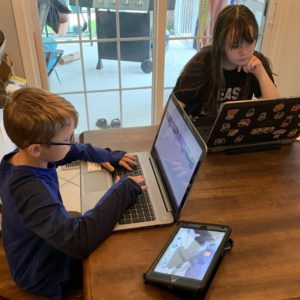Louisiana’s new age verification law, which requires websites that host “material harmful to children” to verify the age of their users, should raise red flags for those concerned about safety and speech online. Allowing one state to dictate online rules will likely lead to 50 different standards, creating a byzantine patchwork of digital rules for businesses and consumers. Congress should not allow states to pass these types of online safety laws and instead address the issue at the federal level.
The Louisiana law requires online services where more than one-third of the content they publish or distribute is “harmful to children” to use age verification to bar minors from accessing their sites. Any that fail to comply can be liable for damages. The law defines the harmful material in question broadly as any material that, according to “contemporary community standards,” appeals or panders to “the prurient interest”; contains “patently offensive” descriptions, displays and depictions of sexual content; and does not have “literary, artistic, political or scientific value for minors.”
The Louisiana law sets a problematic precedent for every state legislature to make their own versions of the bill. Duplicative laws inflate business compliance costs, and higher compliance costs are ultimately passed on to consumers.
Indeed, the state patchwork of data privacy laws already threatens to add $1 trillion in unnecessary burdens to businesses across America. A new state patchwork of online safety laws would hurt businesses and users similarly. This risk is particularly acute because different states have very different interpretations of what material they consider harmful to minors.
State legislatures are already the battleground for controversial policies on the extent to which schools and libraries should expose young children to materials discussing sexual orientation and gender identity. Some states require LGBTQ+ inclusive curriculums, whereas others have sought to ban discussion of those topics among younger children because of concern that these materials are “pornographic” and lead to “sexualizing kids.”
There is no conflict if states have different policies for their own schools, but there is a problem if they have different rules for what content children should be able to access online since there is not one internet for Florida and another internet for California.
State laws regulating online safety will have an effect beyond their borders. And these laws could quickly become a flashpoint in culture wars. Conservative state lawmakers could use online safety laws to demand sites mitigate anti-conservative bias and exclude resources or terms they find offensive. Likewise, progressive state lawmakers can use these laws to fight to do the exact same and mold online services to favor their own views — all under the guise of promoting online safety for children.
Most websites will want to avoid requiring age gates, so they will have a strong incentive to prohibit any content deemed harmful to minors. The result will be a chilling effect on free speech online.
Age verification could help keep some children from adult-oriented content, much like laws today prevent stores from selling children pornographic magazines. But online age verification requires electronic IDs, and the United States lags woefully behind many countries in creating a robust digital identity ecosystem.
The key to age verification that does not chill free speech is to use electronic IDs that allow individuals to verify anonymously that they are old enough to access adult content. While Louisiana offers a state-approved electronic ID card without more widespread testing and auditing to confirm data always remains private, users may rightfully remain cautious of the privacy implications of using the technology.
Online safety should be legislated at the national level, not at the state level, and Congress should preempt states from copying Louisiana’s new law. Addressing these issues in Congress would mitigate the potential for one state to set the rules for online safety for the rest of the country and avoid overly regulating speech online.

